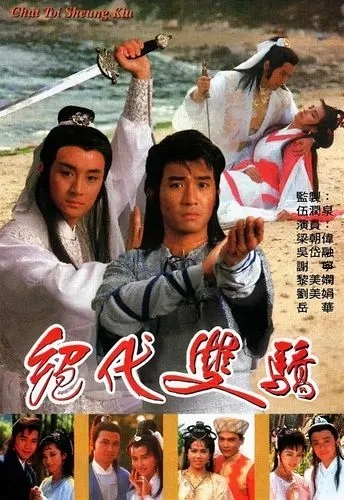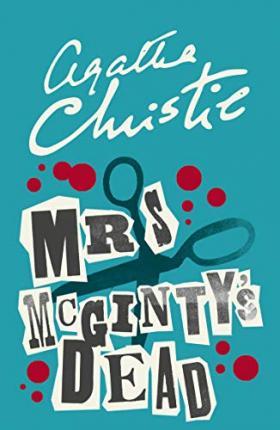Life became hard for Marius. It was nothing to eat his clothes and his watch. He ate of that terrible, inexpressible thing that is called de la vache enrage; that is to say, he endured great hardships and privations. A terrible thing it is, containing days without bread, nights without sleep, evenings without a candle, a hearth without a fire, weeks without work, a future without hope, a coat out at the elbows, an old hat which evokes the laughter of young girls, a door which one finds locked on one at night because one's rent is not paid, the insolence of the porter and the cook-shop man, the sneers of neighbors, humiliations, dignity trampled on, work of whatever nature accepted, disgusts, bitterness, despondency. Marius learned how all this is eaten, and how such are often the only things which one has to devour. At that moment of his existence when a man needs his pride, because he needs love, he felt that he was jeered at because he was badly dressed, and ridiculous because he was poor. At the age when youth swells the heart with imperial pride, he dropped his eyes more than once on his dilapidated boots, and he knew the unjust shame and the poignant blushes of wretchedness. Admirable and terrible trial from which the feeble emerge base, from which the strong emerge sublime. A crucible into which destiny casts a man, whenever it desires a scoundrel or a demi-god.
For many great deeds are performed in petty combats. There are instances of bravery ignored and obstinate, which defend themselves step by step in that fatal onslaught of necessities and turpitudes. Noble and mysterious triumphs which no eye beholds, which are requited with no renown, which are saluted with no trumpet blast. Life, misfortune, isolation, abandonment, poverty, are the fields of battle which have their heroes; obscure heroes, who are, sometimes, grander than the heroes who win renown.
Firm and rare natures are thus created; misery, almost always a step-mother, is sometimes a mother; destitution gives birth to might of soul and spirit; distress is the nurse of pride; unhappiness is a good milk for the magnanimous.
There came a moment in Marius' life, when he swept his own landing, when he bought his sou's worth of Brie cheese at the fruiterer's, when he waited until twilight had fallen to slip into the baker's and purchase a loaf, which he carried off furtively to his attic as though he had stolen it. Sometimes there could be seen gliding into the butcher's shop on the corner, in the midst of the bantering cooks who elbowed him, an awkward young man, carrying big books under his arm, who had a timid yet angry air, who, on entering, removed his hat from a brow whereon stood drops of perspiration, made a profound bow to the butcher's astonished wife, asked for a mutton cutlet, paid six or seven sous for it, wrapped it up in a paper, put it under his arm, between two books, and went away. It was Marius. On this cutlet, which he cooked for himself, he lived for three days.
On the first day he ate the meat, on the second he ate the fat, on the third he gnawed the bone. Aunt Gillenormand made repeated attempts, and sent him the sixty pistoles several times. Marius returned them on every occasion, saying that he needed nothing.
He was still in mourning for his father when the revolution which we have just described was effected within him. From that time forth, he had not put off his black garments. But his garments were quitting him. The day came when he had no longer a coat. The trousers would go next. What was to be done? Courfeyrac, to whom he had, on his side, done some good turns, gave him an old coat. For thirty sous, Marius got it turned by some porter or other, and it was a new coat. But this coat was green. Then Marius ceased to go out until after nightfall. This made his coat black. As he wished always to appear in mourning, he clothed himself with the night.
In spite of all this, he got admitted to practice as a lawyer. He was supposed to live in Courfeyrac's room, which was decent, and where a certain number of law-books backed up and completed by several dilapidated volumes of romance, passed as the library required by the regulations. He had his letters addressed to Courfeyrac's quarters.
When Marius became a lawyer, he informed his grandfather of the fact in a letter which was cold but full of submission and respect. M. Gillenormand trembled as he took the letter, read it, tore it in four pieces, and threw it into the waste-basket. Two or three days later, Mademoiselle Gillenormand heard her father, who was alone in his room, talking aloud to himself. He always did this whenever he was greatly agitated. She listened, and the old man was saying: "If you were not a fool, you would know that one cannot be a baron and a lawyer at the same time."
人生对马吕斯来说,变得严峻起来了。吃自己的衣服和自己的表,这不算什么。他还吃着人们所谓“疯母牛”的那种说不出的东西。这可怕的东西包含着没有面包的白天,没有睡眠的黑夜,没有蜡烛的晚间,没有火的炉子,没有工作的星期,没有希望的前途,肘弯有窟窿的衣服,惹姑娘们嘲笑的破帽子,由于欠付房租因而大门夜晚紧闭,看门人和客店主人的傲慢,邻居的作弄,屈辱,被糟蹋的尊严,被迫接受的任何活计,厌恶,苦恼,疲惫。马吕斯学会了怎样吞这些东西,也知道了常常是除这些以外便没有什么可吞的东西。他正处在一个人由于需要爱而需要自尊心的时候,却感到自己由于衣服破旧而受人嘲弄,由于贫穷而显得可笑。在那种年龄,青春使你心里充满雄心壮志,而他呢,不止一次地低着眼去望他那双穿了孔的靴子,认识到贫穷所引起的那种种不公平的耻辱和锥心的羞惭。可喜可怕的考验,通过它,意志薄弱的人能变得卑鄙无耻,坚强的人能转为卓越非凡。每当命运需要一个坏蛋或是一个英雄时,它便把一个人丢在这种试验杯里。
因为在小小的斗争里,常有许多伟大的活动。常有些顽强而不为人知的勇敢行为使人在黑暗中步步提防那些因生活所需和丑恶的动机的致命袭击。高贵隐秘的胜利是任何肉眼所不见,任何声誉所不被,任何鼓乐所不歌颂的。生活,苦难,孤独,遗弃,贫困,这些都是战场,都有它们的英雄,无名英雄,有时比显赫的英雄更伟大。
坚强稀有的性格便是这样创造出来的,苦难经常是后娘,但有时也是慈母,困苦能孕育灵魂和精神的力量,灾难是傲骨的奶娘,祸患是豪杰的好乳汁。
在马吕斯的生活中有个时期,他自己扫楼梯,到水果店去买一个苏的布里干酪,有时要等到天快黑了才走进面包铺买个面包,遮遮掩掩地回到自己的顶楼,那面包好象是他偷来的。有时,人们看见一个形容笨拙的青年,一只胳臂夹着几本书,神气腼腆而莽撞,溜进那街角上的肉铺子,挤在一些嘴里没好话、把他东推西撞的厨娘中间,一进门便摘下帽子,满额头的汗珠直冒,对那受宠若惊的老板娘深深一鞠躬,继又对砍肉的伙计另外行个礼,要一块羊排骨,付六个或七个苏,用张纸把它裹上,夹在胳膊下的两本书中走了。这人便是马吕斯。
他有了这块排骨,亲自煮熟以后便能过三天。
第一天,他吃肉,第二天,吃油,第三天,啃骨头。
吉诺曼姑奶奶曾多次设法,把那六十个皮斯托尔送给他。
马吕斯每次都退了回去,说他什么也不需要。
我们在前面曾谈到他内心的革命,那时,他还在为父丧戴孝。从那时起,他便没有脱离过黑衣服。可是衣服脱离了他。到后来,他连短上衣也没有了。只有一条长裤还过得去。怎么办呢?他以前曾替古费拉克办过几件事,古费拉克这时便送了他一件旧的短上衣。花上三十个苏,马吕斯随便找个看门的妇人把它翻过来,便又成了一件新衣。可是这件衣是绿色的。马吕斯只在天黑以后才出门。这样他的衣服便是黑的了。他要永远居丧,只好以夜色为丧服。
在这期间他已被接受为律师。他自称住在古费拉克的那间屋里,那原是间雅洁的屋子,里面也有一定数量的法律书籍,加上一些残缺不全的小说,凑合布置一下,便也算有了些业务需要的藏书。他的通讯地址就是古费拉克的这间房。
马吕斯当了律师以后,写了一封信,把这消息通知他外祖父,措词是冷冰冰的,但也全是恭顺的话。吉诺曼先生接到那封信,双手发颤,念完以后,撕成四片,扔在字纸篓里。两三天过后,吉诺曼姑娘听见她父亲在他的卧室里独自一人高声说话。他每次在心情非常激动时总是这样。她听见那老人说道:“假使你不是蠢才,你便应当知道,人不能同时是男爵又是律师。”






